Sweeteners, as indispensable food additives in the food and beverage industry, play an important role in the industry. Sweeteners can be divided into two categories: sugar sweeteners and non-sugar sweeteners. Sugar sweeteners include sugar, starch-derived sugars (glucose, maltose), non-starch-derived sugars (oligofructose, trehalose), and sugar alcohols (sorbitol, xylitol); non-sugar sweeteners include natural sweeteners (stevioside, mogroside) and artificial sweeteners (aspartame, acesulfame potassium).
With the improvement of consumers' health awareness, the markets for two major categories of sweeteners, namely low-sugar, low-calorie, healthy sugars and natural sweeteners that are beneficial to the human body, have ushered in explosive growth. Among them, natural sweeteners represented by stevioside and mogroside are particularly popular in the food industry, and hundreds of new products are launched worldwide every year.
Compared with the booming stevioside, the market of mogroside is developing rapidly, but it is slightly inferior due to many reasons such as low raw material output, high cost and high technical difficulty. The advent of new technology to remove bitter mogroside will open up a broader development direction for Monk fruit, a species unique to my country.
The taste of mogroside is closer to sucrose than stevioside
Monk fruit is produced in Guangxi, my country. It is a traditional Chinese medicinal health food that can clear away heat and detoxify, resolve phlegm and relieve cough, clear the lungs and moisten the intestines, and promote the production of body fluids and quench thirst. It is one of the first batch of medicinal and edible materials approved by the country. In foreign countries, monk fruit is used as a sweetener because of its strong sweetness (300 times sweeter than sucrose), no calories, pure naturalness, and good taste. In recent years, mogroside has gone from being little known in Europe and the United States to being widely accepted by the food and beverage industry, becoming an ideal natural and healthy sugar substitute sweetener.
Monk fruit has outstanding health care effects. It can actively improve and regulate the immune system, liver, and blood sugar of modern people, meeting the health requirements of consumers. Compared with the current traditional natural sweetener stevia, the taste of mogroside is closer to sucrose, and the sweetness characteristic curve almost overlaps with sucrose, which is unmatched by any other sweetener. After being debittered, mogroside will not produce any bitter aftertaste at all. A large number of taste experiments have confirmed that it has almost the same taste as sucrose, which also makes up for the shortcomings of stevia to a certain extent.
Rapidly growing market for mogrosides
In recent years, mogroside has become increasingly popular in foreign markets, and the number of products using mogroside in the food and beverage industry has also gradually increased. Market research consulting firm CCM believes that with its unique low-sugar and low-calorie characteristics and its application in the downstream beverage industry, the Chinese market size of mogroside is expected to grow by 400% in 2019.
At present, the production areas of monk fruit are mainly distributed in southern China and northern Thailand, and the production enterprises are mainly concentrated in China. Guilin Jifusi Monk Fruit Co., Ltd., Guilin Rhine Biotechnology Co., Ltd., GLG Life Science Group and Hunan Huacheng Biological Resources Co., Ltd. are the main domestic manufacturers of mogroside. The mogroside products of these enterprises have successively obtained the US Generally Recognized as Safe (GRAS) certification.
Advantages of De-bittering Mogroside
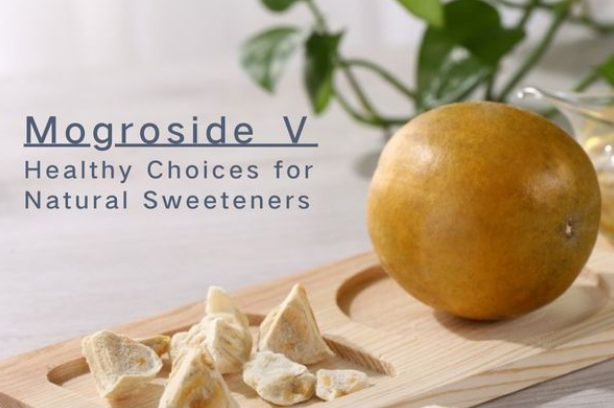
At the "Zhejiang New Natural Functional Food Additives Display and Application Technology Seminar" recently held by the Zhejiang Food Additives and Ingredients Industry Association, Dr. Zhong Xudong from Jiaxing Nano Biotechnology Co., Ltd. gave a keynote speech on "De-bittering and De-astringent Natural Sweetener Mogroside Produced by the New 5R Physical Refining Process", detailing the advantages of de-bittering mogroside.
The debittered mogroside produced by the unique 5R physical refining process is a pure white powder. It removes bitterness, astringency, medicinal flavor, and miscellaneous flavors, and is decolorized. It has high water solubility, good processing performance, and a sweetness and taste that are closest to that of granulated sugar.
Experiments have confirmed that the antioxidant and antioxidant capacity of de-bittered mogroside is four times higher than that of ordinary products, and can effectively inhibit the rise of blood sugar. It can not only control and prevent the sugar and calories in the diet of diabetics, but also effectively meet the sugar needs of diabetics. At the same time, it can also effectively supplement the deficiency of dietary fiber in Chinese people.
Application of Mogroside
In addition to the food and beverage industry, mogrosides are also widely used in the baking field. Through compounding, they can simply replace sugar, making it both delicious and healthy. In a restaurant called Ginza LA Tour in Tokyo, Japan, the manager Tadaaki Shimizu completely replaced white sugar with mogrosides and developed a series of foods including dishes, desserts, beverages, and ice cream. Even diabetics can easily enjoy these delicacies. I believe that in the future, my country's mogroside industry will also take off and be more widely used.
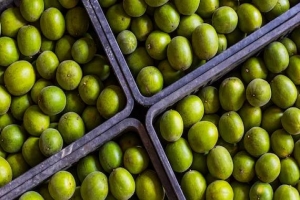 The regulation of Monk Fruit Extract (also known as Luo Han Guo extract) varies across different cou
The regulation of Monk Fruit Extract (also known as Luo Han Guo extract) varies across different cou
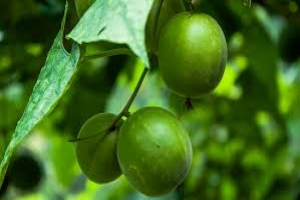 Health Canada Approves Monk Fruit Extract as a Natural Sweetener
Health Canada Approves Monk Fruit Extract as a Natural Sweetener
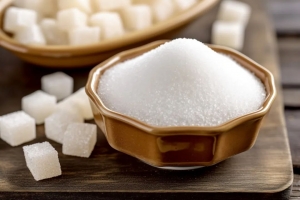 New Breakthrough in Allulose: A Healthier Sugar Alternative Gains Momentum
New Breakthrough in Allulose: A Healthier Sugar Alternative Gains Momentum
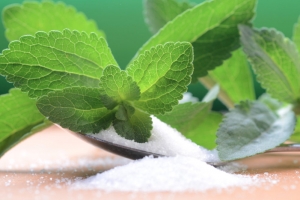 Understanding Reb-M: The Benefits of a Next-Generation Sweetener
Understanding Reb-M: The Benefits of a Next-Generation Sweetener